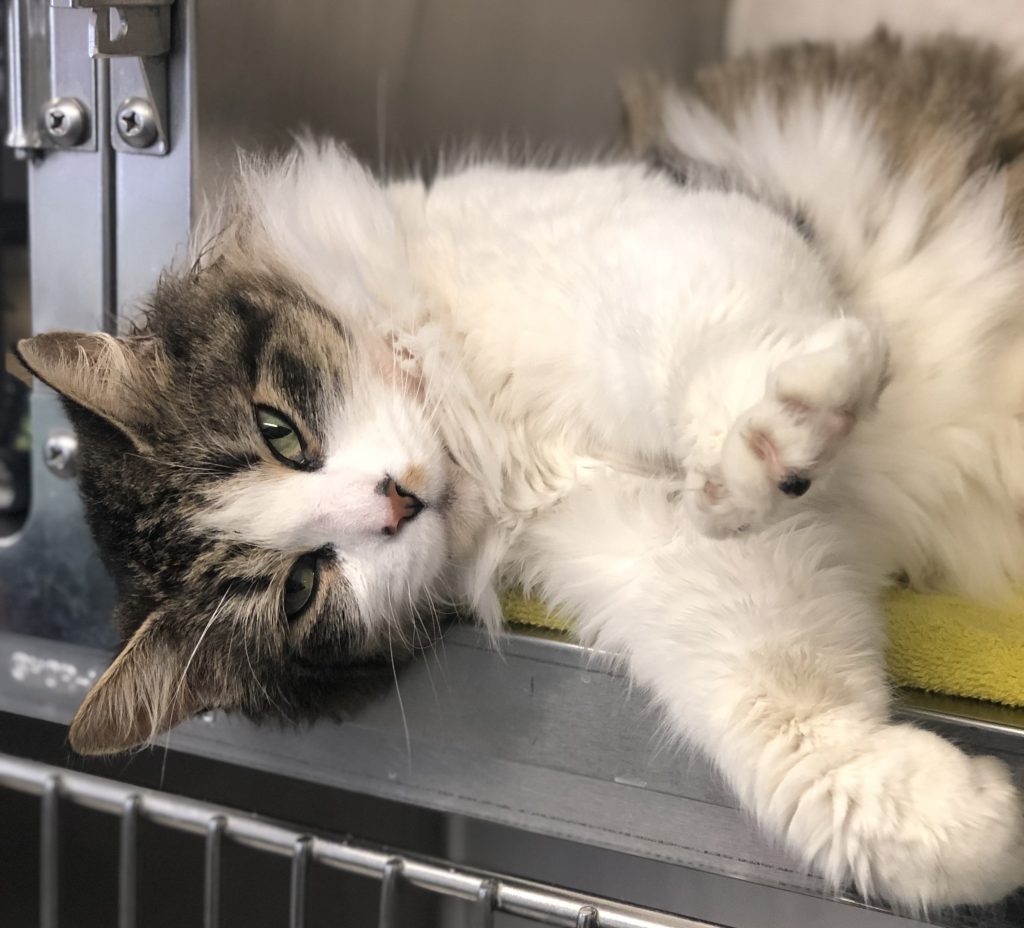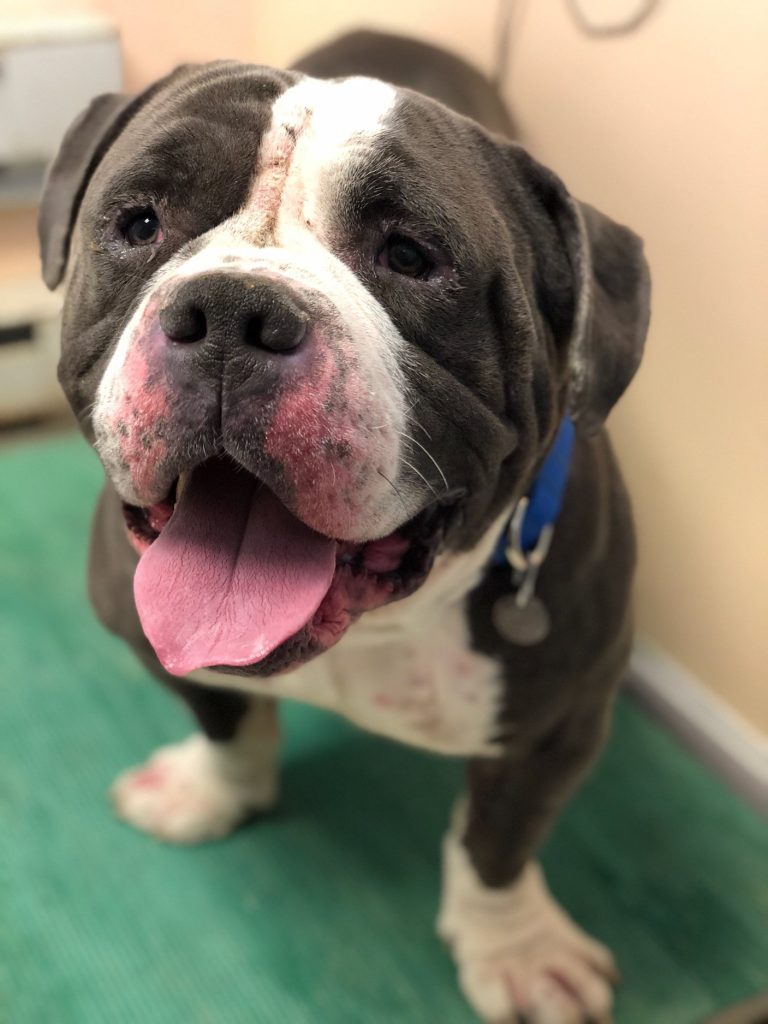As spring blossoms, so does allergy season. We know we’re suffering from allergies when we’re coughing, sneezing, or have puffy, red eyes. Our furry friends can also be affected by the uncomfortable symptoms of seasonal allergies, but they don’t necessarily show it in the same ways we do. Here are some signs that your pet may be experiencing seasonal allergies.

So Itchy!
While humans typically experience allergy symptoms in their respiratory system, pets usually show symptoms in their skin. Animals most often experience an allergic reaction when allergens come into direct contact with their skin, as opposed to when they inhale them. Extremely itchy skin is a major indicator that your pet may be suffering from seasonal allergies. Below are some ways to tell if your pet is feeling particularly itchy.
Biting & Scratching
Most furry friends will bite or scratch at their skin when they’re itchy. Your pet is likely experiencing the effects of allergies if they are obsessively biting or scratching, and will interrupt a favorite activity to do so.
Skin Irritation & Infection
All that itching can lead to irritated, inflamed, and occasionally infected skin. Regular baths using a shampoo with skin-soothing ingredients, like oatmeal, can help calm irritated skin. Wiping down your pet with a cool cloth after time spent outdoors can also help remove allergens from their skin, reducing the chances of irritation. If you notice a hot spot, lesions, or other possibly infected areas, make an appointment with your vet.
Flaking & Shedding

If you notice a significant amount of dandruff or hair loss on your pet, they’re probably suffering from allergies. Dandruff can occur because seasonal allergens can make the skin irritated and severely dry. Obsessive scratching or biting can also result in excessive shedding and hair loss. If your pet is itchy enough to be losing significant amounts of hair or causing bald spots, it’s time to see your vet.
Licking Their Paws
Though cats often lick their paws while grooming themselves, paw licking in dogs is a sign of seasonal allergies. Since their paws have the most contact with the ground outside, irritation in this area is quite common. If your dog is constantly licking at their paws, they’re likely trying to soothe some discomfort caused by allergens. Rubbing their face on the ground, furniture, or with their paws is also a sign that they may be experiencing some discomfort.
Booty Scooting
This symptom is much more common in dogs than in cats, but indicates that your pet may be feeling some discomfort relating to seasonal allergies. When your pet is repeatedly scooting or licking their anal region, they likely have an itch they can’t quite scratch. Though it’s a very unpleasant behavior, this reaction is a similar body function to sneezes or watery eyes in humans.

Ear Infections
It’s no coincidence that a large number of pets get ear infections during allergy season. Many pets suffer from ear infections as a result of seasonal allergies. This is especially true for pets with chronic ear issues. Just like the skin on the body, the skin in your pet’s ears can become itchy, inflamed, and irritated by allergens. When the delicate balance of naturally-occurring yeast and bacteria in your pet’s ears is disrupted by inflammation or irritation, an infection is likely to occur. If your pet’s ears are red and waxy, have an odor, or they’re shaking their head a lot, they should get checked out by a vet to determine treatment.
Respiratory Issues
Though respiratory symptoms from allergies is relatively uncommon in pets, they can still occur when irritating allergens are inhaled. Cats are much more likely to experience respiratory issues due to allergies than dogs, as they are more sensitive to airborne pollutants. Difficulty breathing, wheezing, and coughing are all signs that your pet is having a respiratory reaction. These symptoms should always be checked out by vet, as they can also be signs of other serious health issues.

Humans aren’t the only ones who experience the unpleasant effects of allergy season. If you notice your pet showing any of the above signs, be sure to consult your vet for advice. Although many pets can take antihistamines (like Benadryl), you should always check with your veterinarian before administering any medication, as they can be dangerous when not used properly.
For humans and animals alike, dealing with seasonal allergies is a battle to ease symptoms, not to find a cure. Talk to your vet about ways to manage your pet’s symptoms, and try to keep them as comfortable as possible. When it comes to allergy season, we’re all in this together!
